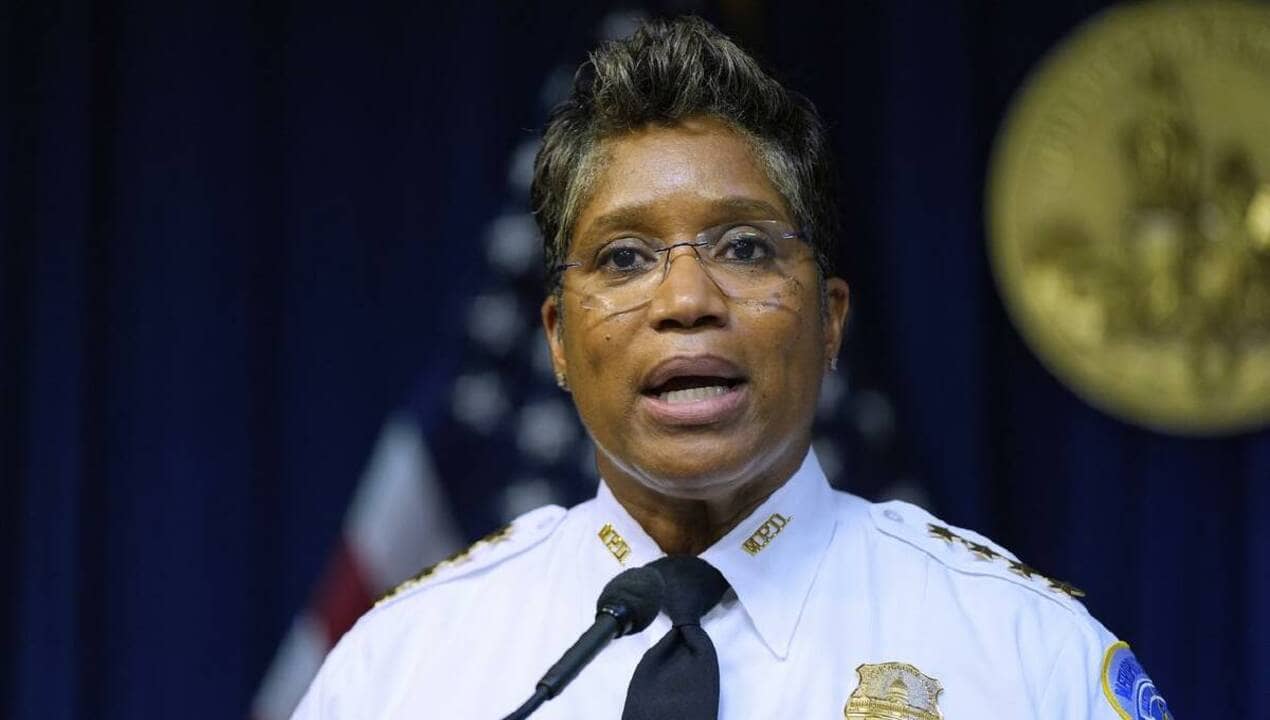
Independent Report – The U.S. Justice Department agreed to scale back Trump’s attempted takeover. This agreement followed intense negotiations between city officials and a federal judge. D.C. Mayor Muriel Bowser’s appointed D.C. Police chief, Pamela Smith, will remain in command. The role of DEA head Terry Cole remains under discussion for future responsibilities. Cole had previously been named “emergency police commissioner” by Attorney General Pam Bondi. Bondi’s revised order now describes Cole as her official designee. These services include assisting federal immigration enforcement despite city sanctuary policies.
The precise boundaries of D.C. Police city-federal cooperation on immigration enforcement remain unresolved. Talks began Friday during a court hearing ordered by Judge Ana Reyes. D.C. Attorney General Brian Schwalb filed a lawsuit challenging Trump’s attempt to take control. The lawsuit sought a court order blocking the move as illegal. Judge Reyes expressed serious doubts about Trump’s authority over D.C. Police. She also questioned whether Cole could effectively command the department. These issues highlight tensions between federal authority and D.C. Police local governance.
Also Read : Democrats Criticize Pentagon Halting $800M Software Projects
Trump justified his actions by claiming a crime emergency in Washington. He announced deploying hundreds of National Guard troops to the city. Justice Department data shows violent crime in D.C. reached a thirty-year low. Federal agencies including the FBI and DEA patrol the city regularly. On Thursday, Bondi escalated the situation by ordering Cole to take control. Trump suggested he might attempt similar actions in other Democratic cities. The move reflects broader presidential ambitions beyond traditional executive boundaries.
The lawsuit names Trump, Bondi, Cole, and other officials as defendants. It intensifies a growing power struggle between Bondi and Mayor Bowser. Bondi’s original order required city approval before issuing any police directives. Several prior police directives, including immigration enforcement policies, were rescinded under this order. Schwalb warned that this constitutes the gravest threat to D.C. Home Rule. Home Rule provides the city self-governance under federal law since 1973. The law also permits presidential control during emergencies for up to thirty days.
Congress can extend this period through a joint resolution if necessary. Some legal experts argue Trump exceeded authority under the Home Rule Act. Courts have historically deferred to presidential emergency declarations, Hasday explained. The issue raises questions about limits on executive power in the United States. Legal scholars continue to debate the scope of presidential authority. The case may establish precedent for federal interventions in local governance. Observers are closely watching how the courts will resolve this dispute.
The role of Terry Cole remains controversial and unresolved in negotiations. He is currently authorized only as a designee, not full police chief. Discussions continue to clarify whether federal oversight will expand in practice. Meanwhile, Pamela Smith continues to manage day-to-day police operations in D.C. The city insists local leadership must maintain authority over metropolitan policing. The negotiations reflect a delicate balance between federal interests and local autonomy. Both sides remain in court-mediated discussions to avoid escalation.
Public reaction has been sharply divided regarding Trump’s attempted takeover. Supporters emphasize the need for strong federal action against crime. Critics argue this threatens Home Rule and undermines local democracy. Social media posts by Schwalb and Bowser highlight public opposition. Community leaders and legal scholars warn about precedent-setting consequences for cities. The dispute illustrates tensions between federal authority and local self-governance. D.C. residents remain concerned about the potential long-term impact.
The situation continues to evolve with national attention focused on D.C. The court will play a central role in determining final authority. Any resolution may influence presidential powers in other American cities. Meanwhile, local law enforcement continues regular operations under Chief Pamela Smith. Federal agencies support specific enforcement without overriding local command. Negotiations and court hearings are expected to continue over the coming weeks. Observers predict this will remain a key constitutional and political debate.
Also Read : Trump and Putin Hold 3-Hour Alaska Summit, No Deal on Ukraine